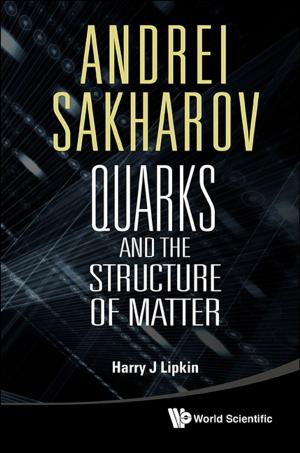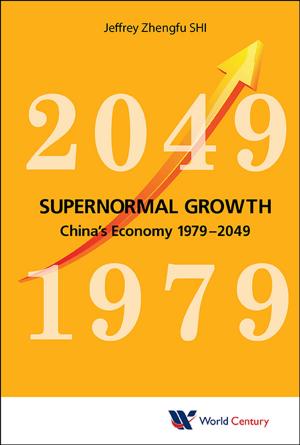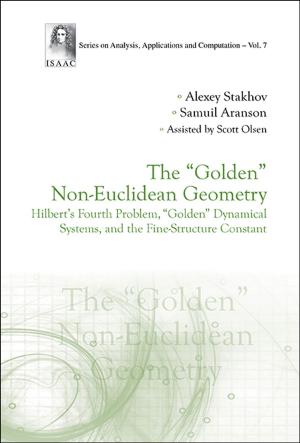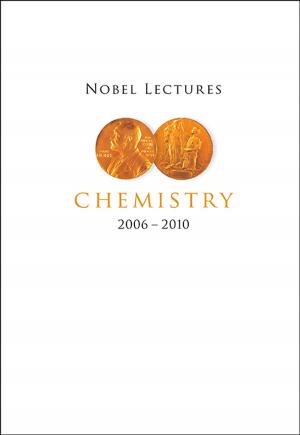50 Years of Anderson Localization
Nonfiction, Science & Nature, Science, Physics, Solid State Physics, Mathematics, Discrete Mathematics| Author: | Elihu Abrahams | ISBN: | 9789814360883 |
| Publisher: | World Scientific Publishing Company | Publication: | June 25, 2010 |
| Imprint: | WSPC | Language: | English |
| Author: | Elihu Abrahams |
| ISBN: | 9789814360883 |
| Publisher: | World Scientific Publishing Company |
| Publication: | June 25, 2010 |
| Imprint: | WSPC |
| Language: | English |
In his groundbreaking paper “Absence of diffusion in certain random lattices (1958)”, Philip W Anderson originated, described and developed the physical principles underlying the phenomenon of the localization of quantum objects due to disorder. Anderson's 1977 Nobel Prize citation featured that paper, which was fundamental for many subsequent developments in condensed matter physics and technical applications. After more than a half century, the subject continues to be of fundamental importance. In particular, in the last 25 years, the phenomenon of localization has proved to be crucial for the understanding of the quantum Hall effect, mesoscopic fluctuations in small conductors, some aspects of quantum chaotic behavior, and the localization and collective modes of electromagnetic and matter waves.
This unique and invaluable volume celebrates the five decades of the impact of Anderson localization on modern physics. In addition to the historical perspective on its origin, the volume provides a comprehensive description of the experimental and theoretical aspects of Anderson localization, together with its application in various areas, which include disordered metals and the metal–insulator transition, mesoscopic physics, classical systems and light, strongly-correlated systems, and mathematical models.
The volume is edited by E Abrahams, who has been a contributor in the field of localization. A distinguished group of experts, each of whom has left his mark on the developments of this fascinating theory, contribute their personal insights in this volume. They are: A Amir (Weizmann Institute of Science), P W Anderson (Princeton University), G Bergmann (University of Southern California), M Büttiker (University of Geneva), K Byczuk (University of Warsaw & University of Augsburg), J Cardy (University of Oxford), S Chakravarty (University of California, Los Angeles), V Dobrosavljević (Florida State University), R C Dynes (University of California, San Diego), K B Efetov (Ruhr University Bochum), F Evers (Karlsruhe Institute of Technology), A M Finkel'stein (Weizmann Institute of Science & Texas A&M University), A Genack (Queens College, CUNY), N Giordano (Purdue University), I V Gornyi (Karlsruhe Institute of Technology), W Hofstetter (Goethe University Frankfurt), Y Imry (Weizmann Institute of Science), B Kramer (Jacobs University Bremen), S V Kravchenko (Northeastern University), A MacKinnon (Imperial College London), A D Mirlin (Karlsruhe Institute of Technology), M Moskalets (NTU “Kharkiv Polytechnic Institute”), T Ohtsuki (Sophia University), P M Ostrovsky (Karlsruhe Institute of Technology), A M M Pruisken (University of Amsterdam), T V Ramakrishnan (Indian Institute of Science), M P Sarachik (City College, CUNY), K Slevin (Osaka University), T Spencer (Institute for Advanced Study, Princeton), D J Thouless (University of Washington), D Vollhardt (University of Augsburg), J Wang (Queens College, CUNY), F J Wegner (Ruprecht-Karls-University) and P Wölfle (Karlsruhe Institute of Technology).
In his groundbreaking paper “Absence of diffusion in certain random lattices (1958)”, Philip W Anderson originated, described and developed the physical principles underlying the phenomenon of the localization of quantum objects due to disorder. Anderson's 1977 Nobel Prize citation featured that paper, which was fundamental for many subsequent developments in condensed matter physics and technical applications. After more than a half century, the subject continues to be of fundamental importance. In particular, in the last 25 years, the phenomenon of localization has proved to be crucial for the understanding of the quantum Hall effect, mesoscopic fluctuations in small conductors, some aspects of quantum chaotic behavior, and the localization and collective modes of electromagnetic and matter waves.
This unique and invaluable volume celebrates the five decades of the impact of Anderson localization on modern physics. In addition to the historical perspective on its origin, the volume provides a comprehensive description of the experimental and theoretical aspects of Anderson localization, together with its application in various areas, which include disordered metals and the metal–insulator transition, mesoscopic physics, classical systems and light, strongly-correlated systems, and mathematical models.
The volume is edited by E Abrahams, who has been a contributor in the field of localization. A distinguished group of experts, each of whom has left his mark on the developments of this fascinating theory, contribute their personal insights in this volume. They are: A Amir (Weizmann Institute of Science), P W Anderson (Princeton University), G Bergmann (University of Southern California), M Büttiker (University of Geneva), K Byczuk (University of Warsaw & University of Augsburg), J Cardy (University of Oxford), S Chakravarty (University of California, Los Angeles), V Dobrosavljević (Florida State University), R C Dynes (University of California, San Diego), K B Efetov (Ruhr University Bochum), F Evers (Karlsruhe Institute of Technology), A M Finkel'stein (Weizmann Institute of Science & Texas A&M University), A Genack (Queens College, CUNY), N Giordano (Purdue University), I V Gornyi (Karlsruhe Institute of Technology), W Hofstetter (Goethe University Frankfurt), Y Imry (Weizmann Institute of Science), B Kramer (Jacobs University Bremen), S V Kravchenko (Northeastern University), A MacKinnon (Imperial College London), A D Mirlin (Karlsruhe Institute of Technology), M Moskalets (NTU “Kharkiv Polytechnic Institute”), T Ohtsuki (Sophia University), P M Ostrovsky (Karlsruhe Institute of Technology), A M M Pruisken (University of Amsterdam), T V Ramakrishnan (Indian Institute of Science), M P Sarachik (City College, CUNY), K Slevin (Osaka University), T Spencer (Institute for Advanced Study, Princeton), D J Thouless (University of Washington), D Vollhardt (University of Augsburg), J Wang (Queens College, CUNY), F J Wegner (Ruprecht-Karls-University) and P Wölfle (Karlsruhe Institute of Technology).















